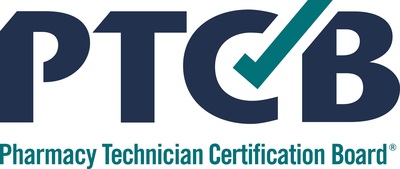Pharmacy Technician

Become a Pharmacy Technician
There’s no shortage of pharmacies in need of skilled pharmacy technicians! This 100% online course will prepare you for the Pharmacy Technician Certification Board (PTCB) National Certification exam and help you complete an externship with a leading pharmacy chain.
Pharmacy Technician Job Outlook
According to the Bureau of Labor Statistics (BLS), demand for pharmacy technicians will grow 12% through 2028 – that equates to over 30,000 new jobs!
The BLS notes that on average, pharmacy technicians earn an annual salary of $32,700. Top earners can make up to $47,000 per year.
WHO SHOULD ENROLL?
There are no prerequisites to enroll.
The externship requires that you have a high school diploma and be at least 18 years old.
This course is 100% online. Start anytime.
Looking for something else?
Check out the full Mitchell Hub catalog!
Pharmacy Technician FAQs
Pharmacy technicians order and stock medications, prepare medications for distribution and provide information to patients. Pharmacy technicians may perform many of the same duties as a pharmacist; however, their work must be approved by a pharmacist before medication can be dispensed.
Requirements for pharmacy technicians vary by state, but most require certification, registration or licensure. Earning your certification from the Pharmacy Technician Certification Board (PTCB) provides a valuable, industry-recognized credential that meets most states’ requirements.
In Connecticut, there is a licensing process for pharmacy technicians that includes the PTCB exam.
This pharmacy technician course can be completed in one year or less. This does not include the time you spend in an externship program or preparing and sitting for state licensure.
As the population ages and the prevalence of chronic diseases rises, more pharmacy technicians will be needed in pharmacies and may even see themselves taking on greater responsibilities in their role.
What you will learn
- Develop a comprehensive understanding of the pharmacy technician role, including essential professional skills and communication expectations necessary for success in a pharmacy setting
- Understand pharmacy regulations and standards from regulatory agencies and professional associations to ensure patient safety, high-quality care, and proper medication handling
- Gain practical knowledge of medication processing and handling procedures, including the ability to identify medication orders and read prescription forms accurately
- Learn about medication storage guidelines and quality assurance procedures in the pharmacy department
- Develop essential skills for success as a pharmacy technician, including accuracy, attention to detail, and effective communication
How you will benefit
- Acquire the knowledge and skills necessary to excel as a pharmacy technician and perform all related tasks and responsibilities with confidence
- Gain hands-on learning through an online lab module that provides practical experience in processing orders and identifying correct medication dosing and sourcing
- Access a comprehensive work experience guide and receive personalized support from our work experience team to prepare for your future as a certified pharmacy technician
- Prepare for the Pharmacy Technician Certification Board (PTCB)’s Pharmacy Technician Certification Exam (PTCE) and earn the highly respected Certified Pharmacy Technician (CPhT) credential upon successful completion
- Take advantage of a voucher for the certification exam and apply for a 100+ hour work practicum experience to gain valuable practical experience and further enhance your professional skills
Curriculum
Medical Terminology
Learn the medical terminology you need to succeed as a Pharmacy Technician
Orientation to the Pharmacy
History, foundations and role of the pharmacy technician in today’s healthcare system
Pharmacy Law and Ethics
Introduction to law, liability and federal regulations of controlled substances
Workplace Safety and Requirements
Introduction to safety in the workplace, prescription ordering and sterile compounding
Pharmaceutical Calculations
Basic, community and institutional pharmacy math to calculate dosages and dilutions
Pharmacology
The science of pharmacology, evolution of drugs and administration of pharmacological agents
Oncology and Infectious Disease
Introduction to oncology, infectious diseases, wellness and promoting health
Career Development
Verbal and non-verbal methods, HIPAA regulations
Instructors
Melissa Dunworth
Melissa Dunworth has been a pharmacy technician for over 13 years and has worked in retail, closed pharmacy, and training/education areas during her career. Melissa holds a bachelor’s degree in Speech and Hearing Sciences and works as a Developmental Specialist in Early Intervention for children ages 0 to 3 years. She has been a certified pharmacy technician since 1997. Melissa is also registered with the New Mexico Board of Pharmacy.
Betty Stahl
Betty Stahl holds a doctorate in pharmacy from Shenandoah University. Over the past several years, she has taught pharmacy technician programs at ASA College in New York City and ACT in Arlington, Virginia. Stahl has also worked as a pharmacist in independent and hospital settings.
Lorraine Zentz
Lorraine Zentz holds a bachelor’s degree in science (Biology/Chemistry), a master’s degree in education (Curriculum and Instruction), and Colorado Teaching License for middle and high school science and math. She is the original author of the Cengage Pharmacy Technician Program, facilitating students from 2003–2018. Working in hospital pharmacies for 30 years, along with teaching, has been her passion and remains so to this day.

